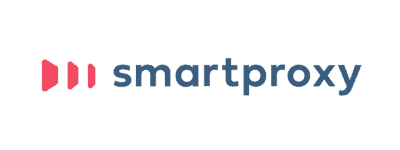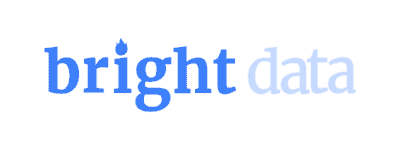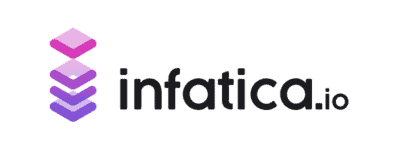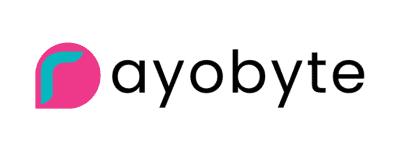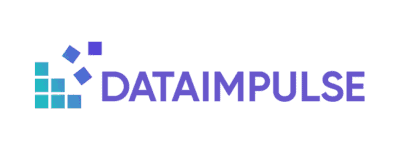The Best Proxy Server Providers of 2025
The proxy market has grown significantly, moving beyond shady practices like black hat SEO to support diverse needs. Individuals use proxies to access geo-restricted content, enhance privacy, and bypass website blocks, while businesses leverage them for web scraping, data aggregation, and market research.
With so many providers, choosing a trustworthy service is challenging. Misleading claims often hide unethical practices or exaggerated IP pool sizes. Instead of sifting through countless reviews, we used our expertise to test leading proxy providers and their offerings. Here’s what we discovered.
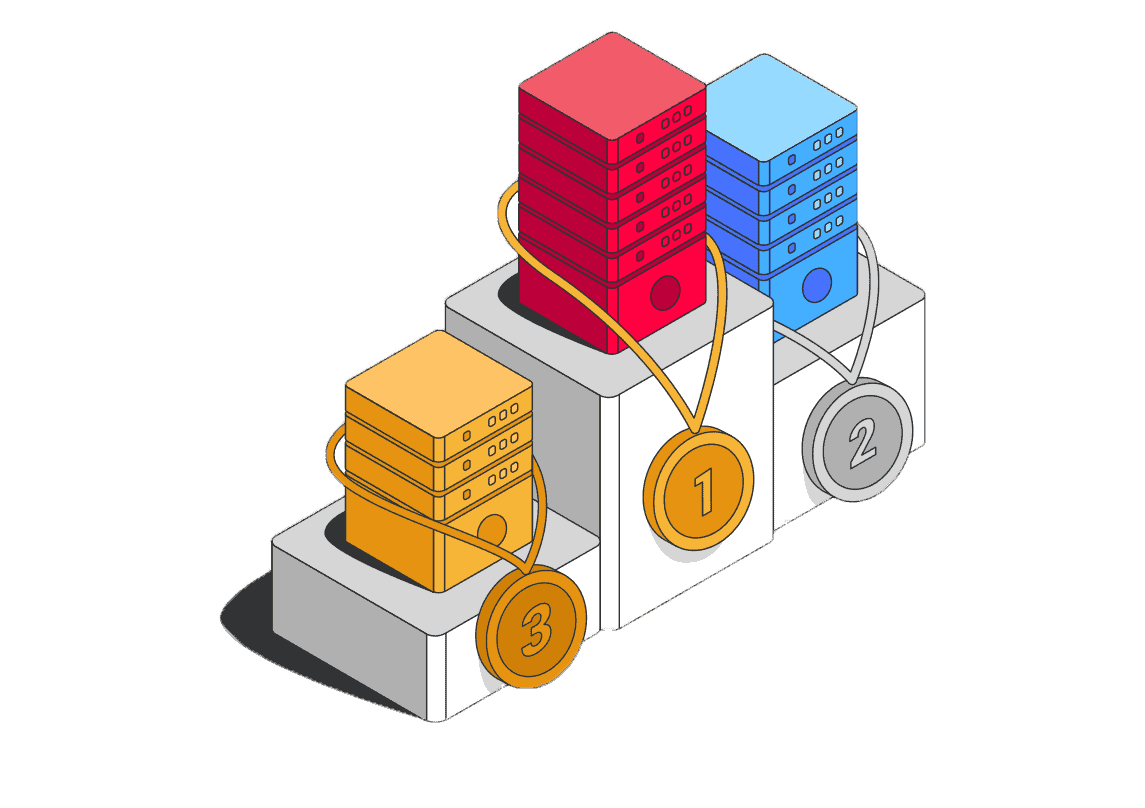
The Best Proxy Server Providers of 2025:

1. Smartproxy – best value provider.

2. Oxylabs – the best proxies for enterprise.

3. Bright Data – the best platform for proxies.

4. SOAX – stable residential proxies with flexible location targeting.

5. Webshare – absolute self-service and customizable subscription.
How We Selected the Best Proxy Servers
When selecting the best proxy servers we relied on our technical expertise and experience, as no universal standards exist for testing proxies. We developed a comprehensive approach, consisting of two primary tests: a performance test and a manual analysis.
The performance test evaluated critical factors such as proxy pool size, quality, success rate, and overall reliability. Meanwhile, the manual analysis dwelled into features, user experience, price, and customer service. We compiled all of the data to the only and most extensive Proxy Market Research.
Why You shouldn’t Use Free Proxy Servers
We won’t be looking at the best free proxy servers. Why? Let’s face it: free proxy servers are terrible for anything beyond the most basic tasks. Are you interested in hiding your IP address and browsing the web anonymously? Don’t use a free proxy server that can track your every move. Unprotected web proxy server can steal your data or inject ads into websites you visit. On top of that, they’ll be slow and often already blocked or abused.
None of the proxy providers in our list are free. Heck, aside from Smartproxy and IPRoyal, the best anonymous proxy services aren’t even cheap! That’s because good service costs money, and we’re looking at the best the proxy server market has to offer.
The Best Proxy Server Providers of 2025
1. Smartproxy
The best value provider.

Mobile proxies
10M IPs

ISP proxies
pool unknown
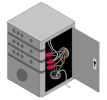
Datacenter proxies
100K IPs
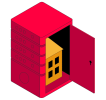
Residential proxies
55M IPs
- Locations: global (residential, mobile); 9 countries (ISP); 5 countries (rotating datacenter)
- Support: award-winning 24/7 support via chat or email
- Extras: API, browser extension, anti-detect browser, extensive documentation
- Free trial: 3-day free trial (residential); 14-day money-back guarantee (ISP, mobile, datacenter)
- Pricing starts from:
– Residential: $7 for 1 GB.
– Datacenter: $10 for 100 IPs ($0.1/IP) or 50 GB ($0.6/GB)
– ISP: shared starts at $28 for 2 GB ($14/GB) or $12.50 for 25 IPs ($0.5/IP). Dedicated – $35 for 10 IPs ($3.50/IP).
– Mobile: $8 for 1 GB
Smartproxy is definitely a smart choice. It has shared and private datacenter, residential, and mobile proxies. Let’s break down everything this provider has to offer.
First of all, the proxies come in huge proxy pools, covering many countries worldwide. All the products provide access to the full IP pool (except IP-based datacenter proxies).
We were pleasantly surprised by Smartproxy’s near-perfect connection success rate and fast response time with most proxy types. For example, its residential proxies reached a response time of 0.54 s with a success rate of 99.68%. The provider managed to beat the market’s veterans like Bright Data.
Besides its premium performance, the provider stands out with user experience. It has extensive documentation, convenient proxy management tools like a browser extension, and award-winning customer service available 24/7. You also get free apps like an antidetect browser or a proxy address generator if you subscribe to any of the provider’s products.
Smartproxy has very competitive prices; it stands somewhere in the middle between cheap and premium alternatives. Let’s take the provider’s residential proxies; their starting price is $7/GB, while others charge slightly more.
However, Smartproxy’s dedicated addresses have limited features and location coverage.
Read the Smartproxy review for more information and performance tests.
2. Oxylabs
The best proxies for enterprise.

Mobile proxies
20M IPs

ISP proxies
unknown

Datacenter proxies
22K IPs

Residential proxies
100M IPs
- Locations: global (residential, mobile); the US and France (ISP), 15 countries (rotating datacenter)
- Support: 24/7 via live chat, dedicated account manager
- Extras: API, browser extension, extensive documentation
- Free trial: 7-day trial for businesses, 3-day refund for individuals
- Pricing starts from:
– Residential: $8 for 1 GB
– Datacenter: $50 for 77 GB ($0.65/GB)
– ISP: $210 for 10 IPs ($2.10/IP)
– Mobile: $9 for 1 GB
Oxylabs is a premium provider focusing on mid-range and enterprise clients. It has residential, ISP (rotating and static), datacenter (shared, private, rotating), and mobile proxies.
The company owns one of the largest proxy networks worldwide and covers any country you can think of.
But Oxylabs doesn’t only focus on quantity; performance is its most prominent feature. To illustrate this, most of the provider’s proxy types ended in the top three positions on our lists. Its residential proxies demonstrated the best overall success rate (99.82%), enviable stability, and the fastest response time (0.41 s).
And let’s not forget the benefits of having a dedicated account manager to help you with whatever query you have, flexible proxy management tools, and quality documentation. It only shows how the company values its customers.
However, you will need a larger budget to reap the most benefits of the services Oxylabs offers. So, if you’re a proxy newbie or looking to use proxies for personal purposes, the provider’s pricing may not be ideal.
Read the Oxylabs review for more information and performance tests.
3. Bright Data
The best platform for proxies.

Mobile proxies
7M IPs

ISP proxies
700K IPs

Datacenter proxies
770K IPs

Residential proxies
72M IPs
- Locations: global (residential, mobile); 50 countries (ISP); 100+ countries (rotating datacenter)
- Support: 24/7 via live chat, tickets, dedicated account manager
- Extras: API, browser extension, Proxy Manager, extensive documentation
- Free trial: 7-day free trial for businesses; up to 15 datacenter IPs and 2 GB/month for free
- Pricing starts from:
– Residential: $8.40 for 1 GB
– Datacenter: Very flexible and depends on the add-ons. Starting from $0.11/GB + $0.8/IP
– ISP: $15/GB + $0.5/IP
– Mobile: $8.40 for 1 GB
Bright Data is one of the largest premium proxy suppliers today. You can get residential, datacenter (shared, rotating, dedicated), ISP, and mobile proxies.
The provider controls the second-largest proxy network in the world that covers all countries. Its proxy servers are full of features like very versatile targeting and rotation.
When it comes to performance, Bright Data has it all figured out. Expect an almost perfect success rate, a good response time and stability.
Bright Data puts its powerful infrastructure to good use, offering a variety of tools: a very extensive API, browser extension, and an open-source proxy manager. The latter allows you to manipulate the IPs to a great extent.
However, if you’re just a beginner, the service may be too powerful and intimidating for you, as it demands technical knowledge. We often point out the high price when we talk about premium providers, and Bright Data is not an exception – the service is expensive if you enable all the add-ons
4. SOAX
Stable proxies with granular filtering options.

Mobile proxies
30M IPs

ISP proxies
2.6 IPs

Datacenter proxies
unknown

Residential proxies
155M IPs
- Locations: global (residential, mobile); US (ISP); 15 countries (rotating datacenter)
- Support: 24/7 via live chat and tickets
- Extras: limited API, node access (connect to an IP directly), customer success manager
- Free trial: 3-day trial for $1.99 available
- Pricing starts from:
– Residential: $4 for 1 GB
– ISP: $3.50 for 1 GB
– Datacenter: $0.80 for 1 GB (minimum 5 GB)
– Mobile: $4 for 1 GB
SOAX offers residential, mobile, shared and dedicated datacenter and ISP proxies.
The company owns a large proxy pool with over 195 countries for residential and mobile proxies. For now, you can get ISP proxies only in the US.
SOAX’s proxies usually perform well. However, their success rate has been dropping the past few years. Moreover, its average response time is one of the lowest on this list.
The most distinguishing thing about SOAX is how flexible its proxies are. You can choose from a wide range of rotation settings and target the IPs up to the city and ASN level without paying extra. To give you some context, Bright Data charges double for carrier targeting. Additionally, the provider has one of the better customer services we’ve seen.
SOAX offers quite affordable rates – their price per GB is lower than the market average. But there are some technical drawbacks like obligatory IP whitelisting.
5. Webshare
Intuitive service with customizable subscription.

ISP proxies
100K IPs

Datacenter proxies
unknown

Residential proxies
30M IPs
- Locations: global (residential); US (ISP); 30 countries (dedicated datacenter)
- Support: via email and chat (6AM-6PM PST)
- Extras: API, basic documentation
- Free trial: a free plan with 10 shared addresses is available.
- Pricing starts from:
*depends on add-ons
– Residential: $7 for 1 GB
– Datacenter: $2.99 for 100 IPs ($0.03/IP)
– ISP: $6 for 20 proxies ($0.3/IP)
Webshare offers datacenter (shared, dedicated, rotating), residential, and ISP proxies. The provider stands out due to its flexibility – very few providers offer that many service customizations.
You’re free to choose how many IPs you’d like to get in your preferred locations and then customize various aspects of the service: traffic, concurrency, and network priority. It also offers very flexible refresh options for its proxy networks, ranging from individual replacements to a full refresh of the proxy list. The service is easy to use, so you shouldn’t encounter any difficulties even if you’re a beginner.
Our tests proved that Webshare’s rotating datacenter proxies have an excellent success rate, though its residential IPs are mediocre.
Webshare can definitely be considered an affordable provider. The cost for basic configuration is below the market’s average, and each new user gets 10 free datacenter proxies to try out for free.
Our main concern about the service is that Webshare has limited targeting options, so it isn’t ideal for location-sensitive use cases.
Read the Webshare review for more information and performance tests.
6. NetNut
Residential proxies for a wide range of customers.

Mobile proxies
1M IPs

ISP proxies
1M IPs

Datacenter proxies
220K IPs

Residential proxies
85M IPs
- Pool size: 200+ countries (residential); 100+ countries (mobile); 30+ (ISP); US (rotating datacenter)
- Support: 24/7 via email, live chat, phone, Skype (larger plans)
- Extras: API (for resellers), mediocre documentation
- Free trial: 7-day free trial for businesses.
- Pricing starts from:
– Residential: $99 for 28 GB ($3.45/GB)
– Datacenter: $100 for 100 GB ($1/GB)
– ISP: $99 for 7 GB ($14.40/GB)
– Mobile: $99 for 13 GB ($7.60/GB)
NetNut has an eye for businesses with big needs. It offers shared datacenter, residential, ISP, and mobile proxies.
The provider’s proxies come from very large IP pools. The residential proxies cover 150 locations, ISP – 30, and shared IPs come from only the US.
Over the years, we’ve seen a gradual improvement of NetNut’s infrastructure – today, most of its proxies reach a success rate of over 98%. Its residential proxies are consistently improving – as of today, there is a 4.63% increase in response speed compared to last year.
NetNut’s cheapest plans don’t have many features, but at an extra price, you can get dedicated support, IP whitelisting, and request-based pricing. So, large enterprises will find the service fitting. Additionally, you’ll get very detailed usage statistics on the dashboard.
NetNut can definitely be called a premium provider – it has one of the highest prices per GB. And even though the cost is more favorable once you go over 100 GB with residential plans, it still can’t compare to alternatives like Smartproxy. And there’s no pay as you go.
7. Infatica
Affordable residential proxies with versatile targeting options.

Mobile proxies
5M IPs

ISP proxies
unknown

Datacenter proxies
5K IPs

Residential proxies
15M IPs
- Locations: global (residential); 100+ countries (mobile); 16 countries (ISP); US (datacenter)
- Support: 24/7 support via tickets, chat or email
- Extras: extensive documentation
- Free trial: 3-day trial for $1.99 available
- Pricing starts from:
– Residential: $4 for 1 GB
– ISP: $5 for 1 IP
– Datacenter: $15 for 5 IPs ($3/IP)
– Mobile: $8 for 1 GB
Infatica sells three proxy types: residential, shared datacenter, and mobile.
The provider owns a 15 million residential IP network, 6 million mobile IPs with locations worldwide, and 5 thousand shared datacenter proxies in the US. The residential service has versatile location targeting options – country, city, or ASN. There’s no limit on the number of threads you can run, and they inevitably rotate – with every request or between 5 and 60 minutes.
Although we didn’t test Infatica’s datacenter proxies, its residential IPs were performant. We did experience a slightly higher error rate than other services on the list, but the proxies were fast.
The provider mainly focuses on businesses, offering cheaper residential rates for enterprise plans compared to other premium options. The price for shared addresses may seem steep at first, but once you scale, it drops significantly.
Infatica has finally introduced pay as you go in addition to their subscription model. In terms of pricing, Infatica’s IPs are on par with other premium providers, so it can be a little pricey, especially if you’re looking for mobile IPs. Though, the price gets better when you scale up.
8. Rayobyte
Robust datacenter proxies with non-expiring traffic.

Mobile proxies
unknown

ISP proxies
unknown

Datacenter proxies
unknown

Residential proxies
unknown
- Locations: 100+ countries (residential, mobile); the US (ISP); 4 countries (rotating datacenter)
- Support: 24/7 support via email, ticketing system, or live chat
- Extras: API (for resellers), extensive documentation,
- Free trial: 2-day free trial available
- Pricing starts from:
– Residential: $7.50 for 1 GB
– Datacenter: from $5 for 5 IPs ($1/IP) (static); $0.60/GB (rotating)
– ISP: $5 for 1 GB (static); $7.50 for 1 GB (rotating)
– Mobile: $50 for 2 GB ($25/GB) or $2.50 for 1 IP
Rayobyte is well known for its private datacenter proxies, but it also sells static and rotating datacenter, residential, mobile, and ISP (static, rotating). It’s a strong choice for customers of all sizes.
The provider doesn’t disclose the size of its private datacenter proxy network, but it’s safe to assume that it’s big. Its peer-to-peer residential addresses cover over 150 countries. And the shared proxies come in three different formats: 1) a list of IPs shared in 11 countries, 2) ports with rotating IPs assigned to each port, and 3) pool-based proxies in the US.
Rayobyte’s datacenter and residential proxies have a good success rate, though they’re a bit slow compared to the alternatives. The provider’s dashboard includes everything needed to work with proxies, and there’s full self-service for datacenter and ISP plans.
The provider offers two payment options: you can choose a scaling pay as you go option or get a traffic-based plan. The provider’s prices scale really well. The more traffic you purchase, the better the price – often below the market average.
Rayobyte’s main downsides come from scarce customization options. Proxies lack custom rotation, its mobile proxies don’t have ASN targeting, and the customer support is mediocre.
9. IPRoyal
Cheap residential proxies with flexible filtering.

Mobile proxies
2.5M IPs

ISP proxies
500K IPs

Datacenter proxies
unknown

Residential proxies
32M IPs
- Locations: global (residential); 7 countries (mobile); 31+ countries (ISP); 50+ countries (dedicated datacenter)
- Support: 24/7 via live chat
- Extras: proxy tester, extensive documentation, browser extension
- Free trial: none
- Pricing starts from:
– Residential: $7 for 1 GB
– Datacenter: $8.75 for 5 IPs ($1.75/IP)
– ISP: $1.80 for 1 IP
– Mobile: $10.11 for 1 IP
IPRoyal is one of the cheaper residential proxy providers, but it also offers affordable private datacenter, ISP, and mobile addresses. The provider has medium-sized proxy pools and good location coverage.
The residential product has flexible filtering and rotation options, but the datacenter and ISP proxies have none of these features. The latter two come with unlimited threads, domains, and a free monthly refresh.
IPRoyal has pretty good customer service, extensive documentation, and a browser extension for easier proxy management.
Over the years, IPRoyal’s performance increased. Residential proxies have a decent infrastructure performance, so they should be enough for less demanding tasks. Though a small amount of unique IPs can cause inconsistent performance or higher risk of traceability.
10. Dataimpulse
An affordable variety provider.

Mobile proxies
unknown

Datacenter proxies
unknown

Residential proxies
5M IPs
- Pool size: 100+ countries (residential); 190+ countries (mobile); 10+ countries (datacenter)
- Support: live chat, 24/7 via email
- Extras: API for resellers
- Free trial: none
- Pricing starts from:
– Datacenter: $50 for 100 GB ($0.5/GB)
– Residential: $50 for 50 GB ($1/GB)
– Mobile: $50 for 25 GB ($2/GB)
DataImpulse, another notable newcomer established in 2022, offers cheap residential, datacenter, and mobile proxies. While their main selling point is affordability, Dataimpulse manages to provide a decent service.
The provider has a small pool of 5 million residential IPs. Here, it’s important to note that DataImpulse appears to have significantly more unique IPs compared to a provider like IPRoyal that has a significantly larger proxy pool.
DataImpulse’s residential proxies are relatively fast and have a great infrastructure, managing to beat established proxy providers like SOAX. Proxies rotate with every request or you can create custom sessions up to 120 minutes.
Considering that DataImpulse is one of the cheapest providers out there, however, the price spikes up with extra features, like city, ASN, or ZIP code targeting. The overall service is good, though quite basic – there are no supporting tools like a proxy manager or browser extension.
Read the Dataimpulse review for more information and performance tests.
11. Nimbleway
Innovative service provider for enterprise.

Locations
Global

Residential proxies
Unknown size
- Proxy types: residential
- Support: live chat, email, Slack, MS Teams, Discord, 24/7 via Zendesk
- Extras: AI proxy optimization engine, extensive documentation
- Free trial: 7-day free trial available
- Pricing starts from $8 for 1 GB or $600 for 600 credits ($6.50/GB)
Another new player in the proxy market, Nimbleway, quickly gained a reputation for being a premium provider. Offering services for the enterprise segment, it provides AI-powered services with their proxies.
Nimbleway does not disclose the size of its residential IP pool, but considering a low amount of unique IPs, we’d say it’s probably small – up to 5 million.
Even though Nimbleway has been in the industry only for a couple of years, the provider seems to be on the right track. The residential proxies are stable, and their success rate is similar to well-established providers like Bright Data. In addition to performance, Nimbleway offers freely customizable rotation and filtering, including country and city targeting, and specific use-case options.
The provider has a distinct pricing system, offering credits that can be used to purchase products or services instead of traffic-based subscription plans. But the main highlights are AI-powered engines that can be used for fingerprinting, data parsing, and IP optimization.
Nimbleway provides 24/7 customer support, but only via ticketing system, so real-time problem solving can be an issue. No ASN targeting can also be a disadvantage in some use cases.
Read the Nimbleway review for more information and performance tests.
Different Types of Proxies
The most common proxy types are datacenter and residential proxies. The former come from cloud hosting companies, while the latter are sourced from real users.
Proxies can be private, which means that the IP belongs to one user or a particular domain. On the contrary, shared proxies are available to a handful of different users. There are also rotating proxies that automatically fetch you IPs from a pool of addresses. For those who need diversity, SOCKS5 proxies can handle almost any protocol, program, or type of traffic.
Proxy Types by Use Case
Proxies can be categorized by specific use cases, such as ad verification, SEO tracking, web scraping, social media management, and more. Here are the main proxy types by use case:
- Ad verification proxies can help track misplaced ads, check their redirection paths, and check whether they appear in the right location.
- SEO proxies are commonly used to track ranks, research keywords, analyze competitors, and perform site audits. Since search engines are tough to scrape, there are specialized proxies to tackle the task, such as Google scraping proxies.
- Web scraping proxies make sure you won’t get blocked when you scrape various targets. They are fast, anonymous, and hard to detect. If you’re using a bot, make sure to get ScrapeBox proxies to go with it. These proxies are used to increase your scraping success rates.
- Sneaker proxies help to overcome strict anti-botting measures imposed by various popular sneaker stores.
- Social media proxies differ according to each popular platform. For example:
- Instagram proxies are usually mobile or at least residential, and they will protect you from getting banned when you’re working with multiple accounts.
- Facebook proxies provide you with an opportunity to unblock, manage multiple accounts, and scrape Facebook.
- Pinterest proxies are verified to work with Pinterest platform, so you will scrape or pin without getting blocked.
- Youtube proxies allow you to access geo-restricted content, automate and scrape YouTube.
- Another popular use case is e-commerce:
- Amazon proxies offer a fast and reliable way to scrape reviews and product listings, perform market research and boost your e-commerce business.
- Craigslist proxies let you scrape its postings or post multiple ads yourself to various locations and without blocks.

Frequently Asked Questions About Best Proxy Providers
There are many types of proxies and you should pick according to your needs. However, for most purposes, such as sneaker copping or web scraping, we recommend using residential proxies. They are fast, stable and will help you avoid blacklists by keeping you anonymous.
After our extensive testing, we can recommend Oxylabs as the best premium proxy service. The company owns the largest proxy pool to date, demonstrates impressive quality and performance of its IPs, and offers many perks, such as a variety of tools and features and a dedicated account manager
If speed is your top concern we recommend using data center proxies. However, this type of proxy can be easily detected by most secure websites and can get you blacklisted. To avoid this, we suggest using residential proxies.
The majority of data were collected in February and March of 2024.
- March 18, 2025
